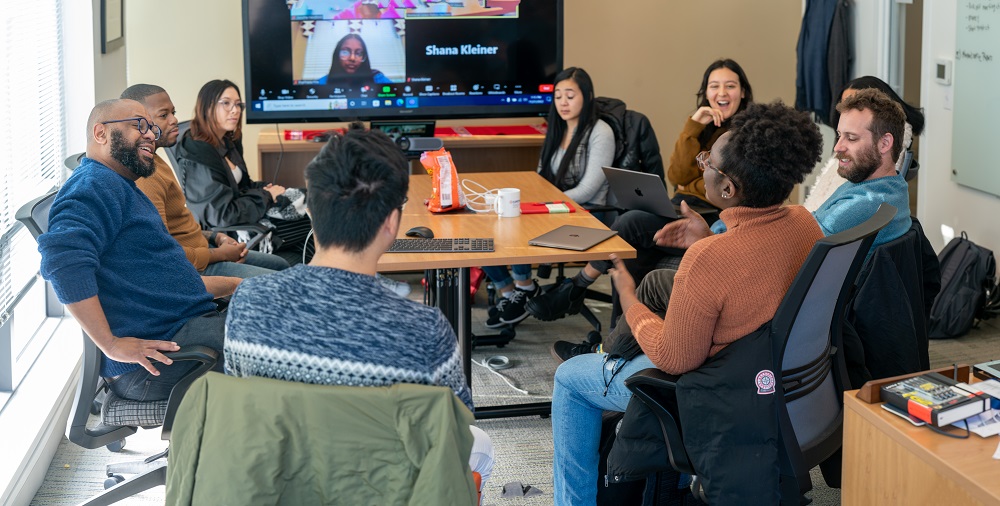The SAFELab, which is affiliated with Penn’s Annenberg School for Communication and the School of Social Policy and Practice (SP2), sits at the intersection of technology and social work, with a focus on studying how youth of color experience violence on and offline. SAFELab was previously based at Columbia University in New York City, but moved to Penn last summer when founder and director Desmond Upton Patton was named the school’s the Brian and Randi Schwartz University Professor.
Patton started the SAFELab over a decade ago as part of his research as an assistant professor at the University of Michigan. The last 10 years have been a process of addressing his own biases, adjusting to new findings in the field and looking to other experts for guidance in the research, he told Technical.ly. For example, he said, when the lab was based at Columbia, it employed young people as “domain experts” for analyzing social media data.
Some issues the lab has explored include the relationship between grief, gun violence and social media — “For the last decade, we have understood social media as a neighborhood and environmental context for which we can better understand the root causes of gun violence,” Patton said — as well as the ethical challenges of social workers using technology such as social media and artificial intelligence.

SAFELab’s works in progress
This year, Patton is especially excited about two things.
One is a new project: SAFELab received a monetary gift from Microsoft to study what joy means to youth in Philadelphia and New York City. In this work, the team will engage directly with young people as well as use machine learning to define and identify concepts of joy on social media.
The second is a new space at the Pennovation Center on Grays Ferry Avenue in Southwest Philadelphia.
There, SAFELab is developing the Penn Center for Inclusive Innovation and Technology through SP2. Patton said he wants this hub to offer resources and to work with Pennovation startups to think more about diversity, equity and inclusion as they develop their products and companies.
“Our focus is really to help people understand the importance of DEI as a metric of success,” Patton said, “in that you can’t be a successful tech company if you don’t have metrics in place, that people are held accountable for, that help people become reflexive and consider inclusion as a tool for success.”
Community connections
Shana Kleiner, lab manager for SAFELab, said SAFELab’s work is focused in tech equity and making technology more inclusive and interdisciplinary by listening to diverse voices. An example of this is the lab’s Black Grief in Harlem project, through which the team interviewed Black Harlemites about grief and shared a digital resource app that could help them navigate that grief.
The team realized “there was no discussion with Black communities in Harlem about what they want to see on this app,” Kleiner said. “And so something that came out of a lot of the focus groups was discussing accessibility for Black communities — having imagery in the app that is more culturally specific to the Black communities in Harlem, even the voices we’re using in the app modules.”
Patton feels it hasn’t been as easy to connect with organizations in the tech community in Philadelphia as it was in New York because he wasn’t sure where to look, and he wishes Penn could do more to facilitate community connections. Going forward, he said, he would like to collaborate as much as possible with people and orgs based here.
“We want to be a resource space for folks who are interested in tech but don’t know how to get involved. We want to create new opportunities in tech that are focused on advocacy and identifying gaps, mitigating those gaps,” Patton said. “We want to be partners with community-based organizations and to be a trustworthy partner and to be listening more than talking, and we want to engage the arts.”







